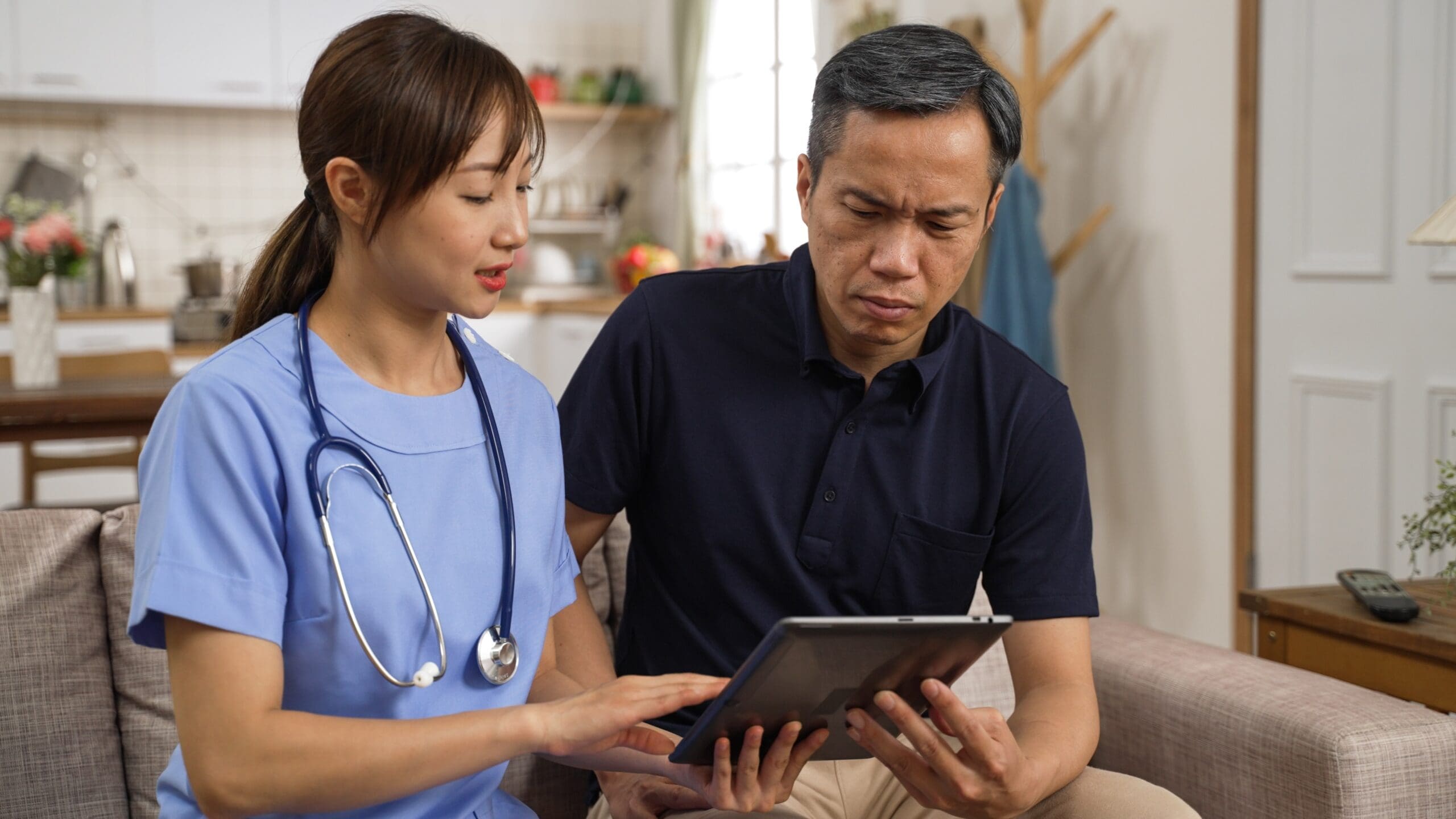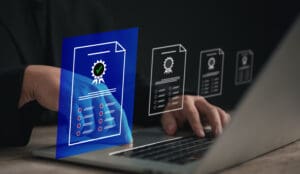The CQC is starting to recognise the importance of technology within social care and is actively pushing the benefits of a number of technologies such as telecare, telemonitoring, mobile health and digital records. This includes the likes of electronic care planning with a platform such as Nourish. But how a more efficient care management system boost your CQC ratings? .
Going digital is quickly becoming the norm in the care sector and for good reason. Efficiency, data protection and compliance are just a few of the things that make electronic care planning desirable to many care providers. And while they are not currently mandatory within the care sector, they do have a significant chance of boosting your CQC ratings.
What’s wrong with our current way of working?
Nothing. Many care organisations are very happy with their existing structure and processes, but it’s the paper-based system that’s slowing them down. There are plenty of organisations who have good or outstanding CQC ratings even with a paper-based system, but an electronic care planning system can help you achieve these scores quicker and easier, so you can actually focus on giving person-centred care rather than feeling like you’re always filling out paperwork purely to meet CQC’s expectations.
Having everything recorded in one place can make audits far less stressful, and as the CQC also start to realise how much easier it is to complete an inspection when everything is managed electronically, making the switch to a digital way of working seems the natural way forward.
But electronic care planning isn’t about changing the way you work, it’s simply about using a different platform to enhance your current way of working. At Nourish we designed a totally flexible platform that can be moulded to suit your current way of working, not the other way around, while allowing you to reap the communication and responsiveness benefits of managing information digitally.
No matter what type of care you are providing, whether it be residential care for older people, support for people with learning difficulties, mental health, dementia or other, Nourish’s electronic care planning system can help you focus on the people you support rather than paperwork.
Isn’t it just the same as what we do now, but on a computer?
Electronic care planning can be so much more than what it says on the tin. Some electronic care plans are quite literally just digitally recorded care plans, the same as they are on paper. While these do have some benefits, in order to see changes in efficiency, you need a platform that is going to refine the way you already do things, so that it’s quicker, easier and clearer for carers to use.
In order to use electronic care planning to improve your CQC ratings, you don’t necessarily need to change the way you provide the care, only the way you record and evidence it. Electronic care planning can offer different ways of doing things that allow you to stay focused on person-centred care, most importantly, it can allow you to have more face-to-face time with those you support rather than spending time on lengthy paperwork.
Nourish is an innovative platform with ever-evolving features that can help you provide better daily care outside of the electronic care plans. So whether you already have an effective structure in place or you’re looking to improve the way you do things, Nourish’s electronic care planning system has a lot to offer.
Transparency of Care is Key
We believe transparency and consistency across care teams is essential when it comes to achieving good and outstanding CQC ratings. Nourish is designed in a way to encourage clearer communication to empower carers across the sector.
We want to help you provide the best quality care in the simplest form. Rather than try to create something very complex, we have kept the user interface clutter free and the features limited to the things you need. Care plans are one of our most-used features, however there are many other features which have proven to be incredibly useful when it comes to meeting CQC standards.
How electronic care planning can help
Nourish has a number of unique features that can help you build a more effective care management system and boost your CQC ratings. Here’s just a few…
Seamless handovers
Nourish’s handover feature is one of the main ways we encourage transparency across care teams. If one of your members of staff comes back after a week or two of holiday, catching up can seem impossible with a huge pile of papers to work through. This is where things can get missed and your CQC ratings could slip.
The handover feature allows you to view the past days and weeks all in one place, and easily pick out any important notes that may have been recorded in your absence. Carers can leave specific handover notes for those who are absent, and these are then there for when they come back to work. It’s also the perfect tool for ensuring everyone knows what’s happening at the changeover of shifts, so someone starting the night shift will be able to clearly see everything that’s happened throughout the day.
These notes will also be visible in the relevant sections and can be viewed when recording at the point of care and can also be read easily by a CQC inspector and evidences the clear communication within the team
Body maps
Skin conditions are usually monitored and recorded on paper, which means that when changes occur (which they can do frequently), it can be difficult to update the records quickly enough to pass this information on to a wider team. The body map feature allows you to report on new and existing skin conditions at the point of care, creating a clearer flow of communication and reduces the risk of mishandling of those who do have certain conditions.
The transparency that this feature ensures that everyone is equipped with the relevant information to do their job safely and effectively, and with everything recorded on the body map within the Nourish app, when it comes to a CQC inspection, there is clear evidence of how you manage this.
Scored assessments
Nourish’s scored assessment feature allows you to closely monitor those you’re supporting in order to provide the right kind of care. By answering a series of questions, Nourish can then generate a score and create alerts for certain things so that carers can react quickly to change.
This provides a more accurate way of tracking things such as nutrition, fluid intake, behaviour, wellbeing and more, so that you can provide care that is completely tailored to the individual’s needs.
With a slicker, smoother way of creating care plans, recording notes, and managing staff, everyone benefits from electronic care planning. Not only are people receiving more person-centred care, but carers feel empowered by the open communication and clarity surrounding care plans, which ultimately makes for far more efficient management within the care sector.
No matter what your current CQC rating, the Nourish system can help you improve your overall efficiency, saving you time and stress when it comes to those all-important CQC inspections.
Those details that make your care team stand out and life more colourful
When care teams have the right culture and values and the time to focus on each person, this becomes visible in the little details: receiving personal care according to the individual’s preferences, finding what is meaningful for each person and enabling each and every one to have aspirations.
Whether that’s watching the cricket, feeding the ducks or checking the grandson’s new update on Facebook. Being able to demonstrate how your team goes above and beyond to help each person they support find meaning and wellbeing every day is a big part of what moves the needle towards the coveted Outstanding rating.
And Nourish enables exactly that do be done simply, by configuring each interaction so it’s aligned with personal preferences, or by recording ad-hoc interactions on the go, with photos, voice annotations recorded by your team or the person themselves. It’s the ultimate demonstration that each person is living a fulfilled life, above and beyond being kept safe, their life has meaning, and the care team is able to innovate every day to improve the wellbeing of those they support.








